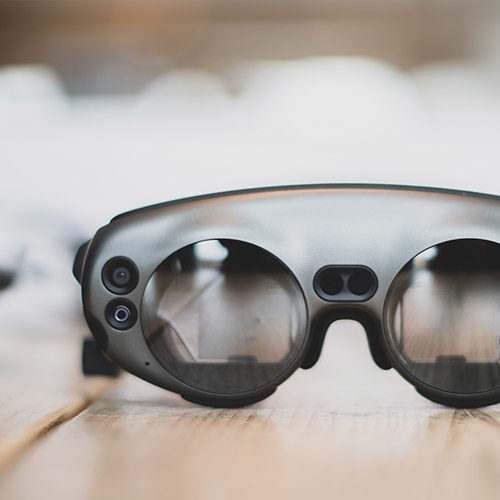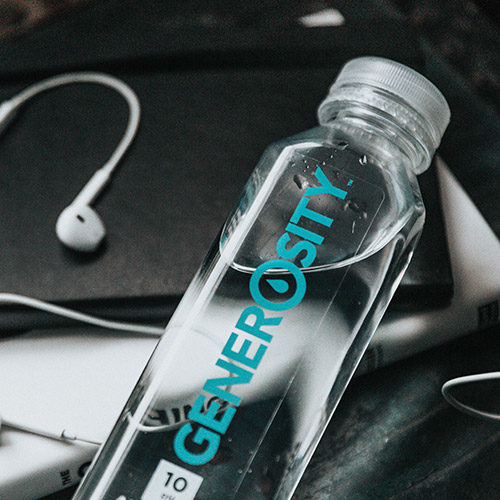Efficiency Without Exhaustion: How to Prevent Burnout at Your Hotel
Productivity is a key driver for success in every industry, especially hospitality.
As a hotel operator, maintaining high levels of productivity among your staff is essential for providing excellent guest experiences.
However, the demanding nature of the industry can sometimes lead to employee burnout.
Let’s explore strategies to enhance productivity while safeguarding against burnout in your hotel and how Source1 can help you achieve it.
- Foster a Positive Work Environment:
To foster a positive work environment in the hotel industry, prioritize effective communication between management and staff, encouraging open dialogue and feedback.
Promote teamwork through team-building activities and regular meetings, cultivating a sense of camaraderie. Recognize and reward employees for their efforts, whether through verbal praise, employee of the month programs, or performance bonuses.
Provide opportunities for professional development and training to support career growth. Prioritize work-life balance by implementing reasonable schedules and flexibility when possible.
Lead by example, exhibiting a positive attitude and approachability. By incorporating these elements, hotels can create a workplace where employees feel valued and motivated, contributing to a positive and thriving work environment.
- Implement Efficient Training Programs:
Efficient training programs in the hotel industry are pivotal for ensuring a skilled and motivated workforce. To implement these programs effectively, start with a comprehensive needs assessment to identify specific areas for improvement.
Design training modules that are tailored to the unique demands of the hospitality sector, incorporating practical and interactive elements. Utilize a variety of training methods, such as hands-on workshops, e-learning platforms, and on-the-job mentoring, to accommodate diverse learning preferences.
Ensure the content remains current by regularly updating training materials to align with industry trends and evolving guest expectations. Continuous monitoring and evaluation of the training programs, along with feedback from participants, allow for necessary adjustments, ensuring that the training remains impactful and relevant.
By committing to efficient and targeted training initiatives, hotels can cultivate a skilled and adaptable staff, ultimately enhancing the guest experience and the overall success of the establishment.
- Streamline Processes and Embrace Technology:
Evaluate your hotel’s operational processes and identify areas for improvement. Embrace Source1 technology that streamlines tasks, such as inventory management, spend management, contract utilization, and product optimization.
You can optimize your inventory process with our automated technology for more accurate forecasting and effective ordering and use AI-Driven procurement software that recommends opportunities for new savings.
Our spend management technology provides real-time visibility into your purchasing, providing actionable data on how your spending impacts profitability. With contract utilization, you can ensure you’re paying the correct prices, make corrections, and maximize the value of all your negotiated contracts.
When taking advantage of technology, you not only save time but also reduce the likelihood of repetitive and monotonous work that can contribute to burnout.
- Prioritize Work-Life Balance:
Prioritizing work-life balance in the hotel industry is essential for fostering a healthy and motivated workforce. Establishing reasonable work schedules, providing flexible arrangements when possible, and ensuring fair distribution of workload contribute to a more balanced professional life for hotel employees.
Encourage employees to take breaks and use their vacation time, emphasizing the importance of rest and rejuvenation. Implement policies that discourage excessive overtime and promote a culture that values the well-being of staff.
By recognizing and supporting the need for work-life balance, hotels can enhance employee satisfaction, reduce burnout, and ultimately contribute to a more productive and positive working environment in the hospitality sector.
- Offer Professional Development Opportunities:
In the hospitality industry, offering professional development opportunities is instrumental in nurturing a skilled and motivated workforce. Establish a framework for continuous learning by providing employees with access to workshops, seminars, and industry conferences.
Implement cross-training programs to broaden skill sets and encourage career growth within the organization. Foster mentorship relationships and support educational pursuits, such as certification programs or degree courses related to the hospitality field. This not only enhances employee satisfaction but also contributes to a more skilled and versatile team.
Another way to show professionalism at your restaurant is by encouraging your staff to wear uniforms. Uniforms play an important role in the success of your business. They create brand consistency, boost confidence, and show a sense of equality.
By investing in the professional growth of staff, hotels not only enhance the capabilities of their team but also bolster employee morale and loyalty, ultimately contributing to the overall success of the establishment.
- Recognize and Reward Achievements:
In the hotel industry, recognizing and rewarding employee achievements is a key strategy for fostering a positive and motivated workforce. Implement a structured recognition program that acknowledges outstanding performance, whether it’s exceptional customer service, innovative problem-solving, or exceeding targets.
Consider a variety of rewards, such as employee of the month recognition, performance bonuses, or tangible incentives like gift cards or extra time off. Publicly celebrate achievements during team meetings or through internal communication channels to highlight the value placed on individual contributions.
This not only boosts morale but also encourages a culture of excellence and dedication among hotel staff, ultimately contributing to enhanced guest satisfaction and overall success in the hospitality sector.
- Create a Supportive Team Culture:
Creating a supportive team culture is pivotal in the hotel industry to foster collaboration and elevate overall employee satisfaction. Encourage open communication and camaraderie through team-building activities, regular meetings, and shared goals.
Emphasize the importance of mutual respect and appreciation for diverse roles within the team. Provide opportunities for professional growth and skill-sharing, fostering an environment where team members can learn from each other. Recognize and celebrate team achievements, reinforcing a sense of unity and shared success.
Establish a supportive leadership approach, where managers actively listen to employee concerns and provide guidance. By nurturing a positive team culture, hotels not only enhance internal dynamics but also contribute to a cohesive and motivated staff, ultimately elevating the quality of service and guest experience.
- Conduct Regular Check-Ins:
At your hotel operation, conducting regular check-ins with employees is essential to prevent burnout and promote overall well-being. Implement a structured system of one-on-one meetings between managers and staff to discuss workloads, challenges, and individual goals.
During these check-ins, create a space for open communication, allowing employees to express concerns or seek guidance on managing stress. Recognize and appreciate their efforts, reinforcing a positive work environment. Actively monitor workload and ensure a fair distribution of tasks to prevent excessive stress.
By regularly checking in with employees, hotels not only demonstrate a commitment to their staff’s mental health but also proactively address potential burnout, fostering a workplace culture that values and supports the overall well-being of its team.
Productivity Wins the Race
Prioritizing productivity while preventing employee burnout requires a holistic approach that considers the well-being of your staff.
By fostering a positive work environment, providing ongoing training and development, and implementing supportive policies, you can create a hotel team that is not only highly productive but also resilient in the face of challenges.
Remember, a happy and motivated staff is the key to delivering exceptional guest experiences and ensuring the long-term success of your hotel. And with the help of Source1, you can hit the mark in all areas of your operation.









